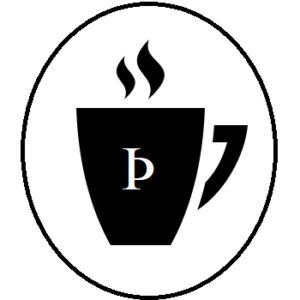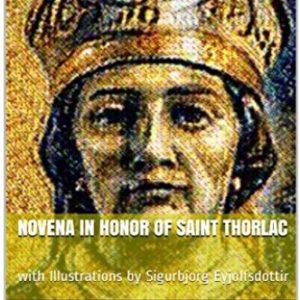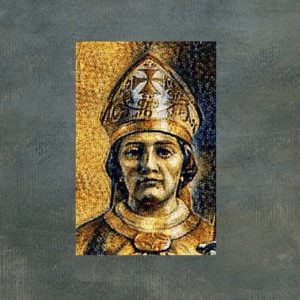Neurodivergent hospitality is not a contradiction
by Aimée O’Connell
One of the things we strive to do at Autism Consecrated is look at the many contradictory aspects of neurodivergent life in the hopes of finding solutions. Universal design is a core value of ours, at times as much for the sport of the challenge as for the gratifying payoff each time the entire community can benefit from something which might instead have gone the way of an easily forgotten one-and-done accommodation.
The topic of hospitality is an ongoing conversation here. What does hospitality look like for autistic and neurodivergent people? Well, that’s not too difficult to answer, in theory. Hospitality means “the friendly and generous reception of guests, visitors or strangers” (Oxford Dictionary). Implied in that is a sense of genuine interest in providing a comfortable, safe, inviting setting for those who stop by. Hospitality for the neurodivergent, then, is no more mystifying than finding out what our needs are, and then striving to provide for them.
Still, that can seem daunting to communities who are used to doing things as they have always been done, and who approach accommodations with a certain trepidation, consciously or not. Besides that are the apparent contradictions between social ministries and autistic needs. For instance: What does “fellowship” look like for those with low social energy, or in group settings that cannot provide the level of quiet and space some people need to communicate (that is, to process and participate in conversation)? Any attempt to answer will be very setting-specific. But here is a constant across all situations: connection is possible with as few as just two people. Saint Thorlak often drew the attention of his mentees to what Jesus said in Matthew 18:20 (“Where two or more are gathered in my name, I AM present”). Jesus is both present in the Sacrament of the Eucharist and in the community of His followers, whom he explicitly says comprise His Body. In Matthew 18:20, He clarifies that community exists in groups as small as two – thus offering a way toward solving the question of hospitality for autistic and neurodivergent people. Warmth, invitation, welcome and support can be offered individually to individuals at any place, any time, and community is achieved – that is to say, the Body of Christ is realized.
Saint Thorlak himself was mentored by the Victorine brothers in Paris, renowned for their credo Docere Verbo Et Exemplo – To Teach By Word And Example. He had the reputation of being a stickler for the priests in his diocese to live what they preached, demonstrating discipline by themselves being well-disciplined, and demonstrating mercy by themselves being merciful. He was also known to have great difficulty speaking, particularly in large groups (… sound familiar?) Much of his “teaching by word” was accomplished through writing, which was then read by and to clergy as pastoral instruction. Saint Thorlak used writing to both accommodate his needs and conserve his social and physical energy for the Sacraments and important administrative matters.
Our pondering has led us to see Saint Thorlak’s method of teaching by word – both his frequent reference to Matthew 18:20, and his embracing his communication needs so fully – as his way of “teaching us by example.” We constantly look for ways to model what we might like to see take shape in terms of universal design and outreach, all the while considering our needs as autistic people, and the needs of any autistic people in ministry and socially-active roles in church life. It only makes sense to start with the same kinds of accommodations and supports as befit our own sensory and processing needs. And so, we are going to try rolling out a beta version of one of our ideas.
Saint Thorlak’s Virtual Café is a simple page front offering images suggesting (we hope!) an inviting spot for website visitors to pause and connect, virtually. If this were in three dimensions, we might picture a small café with comfortable seating, low lighting, a selection of refreshments which both please the palate and consider a variety of dietary needs… and, cats. We happen to find cats most delightful and spirit-lifting. If this were in three dimensions, we’d have to have cats, along with a cat-free room for those who find cats distressing or are allergic to cat dander. (Anything is possible when we build cafés in our imaginations… the virtual model at least offers allergy-free images). Over time, the cat theme may evolve into something more artfully nuanced; for now, the beta version has plain old snapshots of two feline denizens.
The café of our imagining would offer space to connect with one another, one or two at a time. We’re not just proprietors here – we want to greet you, share time together and connect with you ourselves. Your visit brings Christ present, and we are eager to welcome Him! We genuinely seek the gift of your friendship.
Since this is a virtual café, we thought we might welcome visitors with a contact form. We realize that has its limitations, particularly for those with low vision or difficulty typing. It’s a beta version, after all, and our resources are extremely simple. However, we hope that the technology on our visitors’ end can be of help to them. Speech-to-text might work for those who need it, and perhaps down the road we can rig up a way to record spoken messages and send them through. As for us, we rely heavily on typing, so that is a reflection of our own communication and processing styles. We are happy to receive feedback and ideas if anyone has any to share.
So, what is the point of the form? Anything our visitors want to say, share or ask. Over the next few weeks, as Lent begins, we thought we might offer the specific idea of folks sharing their triumphs and frustrations with their Lenten journeys, since that (especially the latter) seems to be a common theme among fellow neurodiverse travelers. Look for a blog post on that topic in the very near future. But really, any topic you find relevant is of sufficient interest.
Please click through and give it a go! May Saint Thorlak’s Virtual Café bless us with an autism-friendly realization of fellowship in the Body of Christ!




